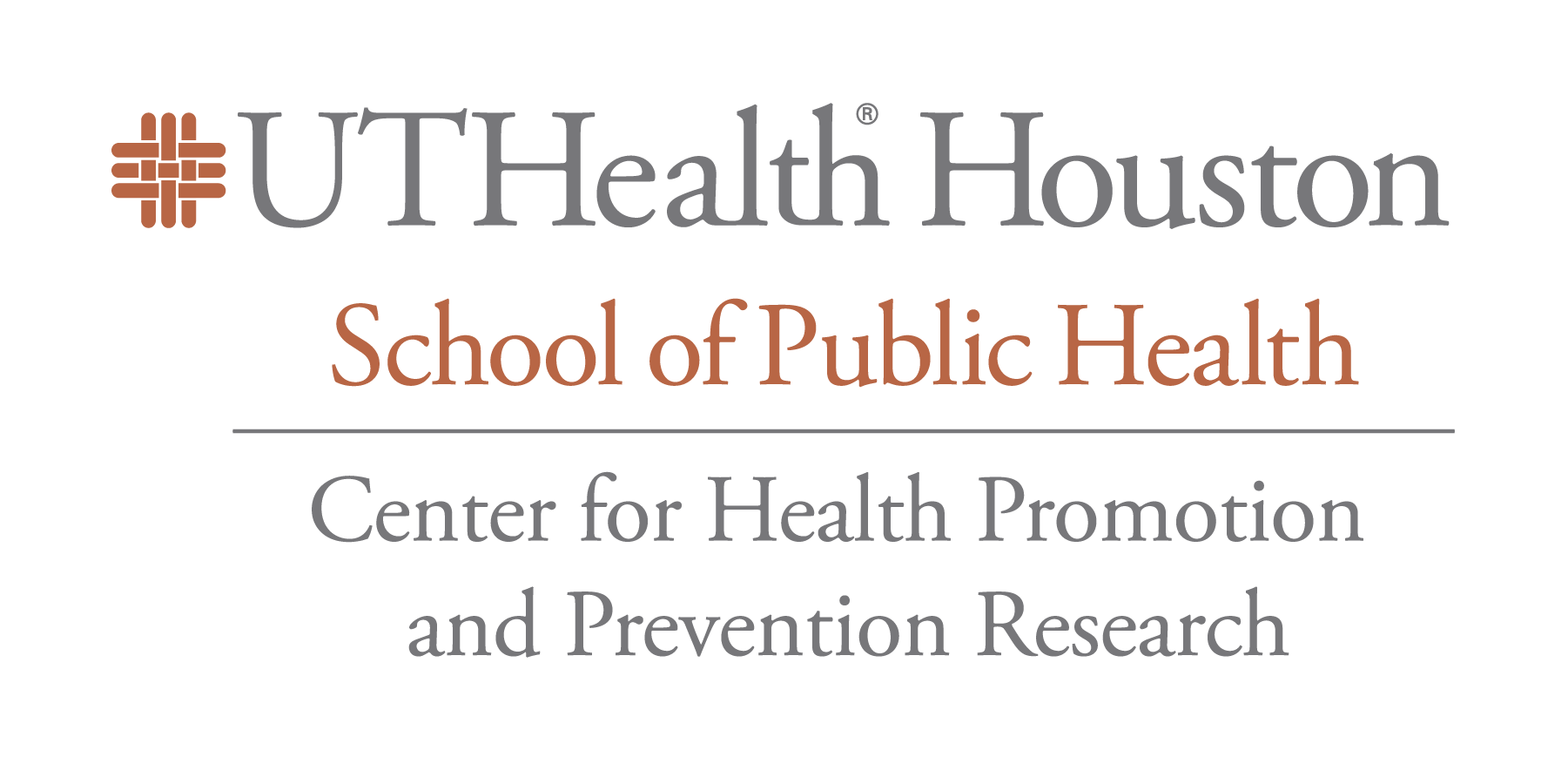The UTHealth Houston Center for Health Promotion and Prevention Research
Populations of Focus: African American and Hispanic populations
Topic Areas: cancer prevention, sexual health, substance abuse
Introduction, Mission, and Vision
The UTHealth Houston Center for Health Promotion and Prevention Research (CHPPR) is one of 26 Prevention Research Centers (PRCs) supported by the Centers for Disease Control and Prevention (CDC) for the 2019–2024 funding cycle. Each PRC is funded to establish and maintain their center and to conduct a core research project. PRCs may receive supplemental funding to conduct additional research projects and activities.
CHPPR’s mission is to conduct research to develop, evaluate, and share health promotion and disease prevention programs. These efforts include a focus on decreasing cancer-related and chronic disease health disparities in African American and Hispanic populations.
CHPPR leverages the experience and expertise of UTHealth Houston faculty and staff to accelerate the adoption and implementation of sustainable evidence-based interventions (EBIs) for cancer control. Its vision is to close the gap between cancer control research and implementation of effective programs. CHPPR works to achieve this vision by addressing social determinants of health in African American and Hispanic communities in partnership with community health centers.
Core Research
Each PRC uses a community-engaged approach to conduct one primary applied public health prevention research project called a core research project. Project activities include design, development, implementation, evaluation, and dissemination. PRCs use at least 50% of their CDC funding to conduct the project in partnership with communities.
Salud en Mis Manos Dissemination and Implementation Assistance (SEMM DIA)
CHPPR’s core research project for the 2019–2024 funding cycle is an implementation study examining the use of the evidence-based Salud en Mis Manos (SEMM) program in health centers with the help of the SEMM-DIA implementation decision support tool. SEMM-DIA will evaluate the increase in mammography and cervical cancer screenings and HPV vaccination outcomes among participating health centers. It will also conduct a comprehensive process evaluation of the SEMM-DIA tool, monitoring SEMM implementation fidelity, reach, dose, and coverage in health centers.
To increase community engagement and collect data, CHPPR created a network of community partners across Texas called PACE (Partners Accelerating Cancer Control Evidence) to focus on cancer control in urban and rural minority communities. Its overall strategy includes providing health-promoting resources, education, and training in communities and health care settings through academic, public health, and community partnerships.
“With our focus on implementation science, CHPPR is working to bridge the substantial gap between cancer and chronic disease control, research, and practice,” said Maria E. Fernandez, PhD, center director. “Together with communities and stakeholders, we work to accelerate and improve the adoption, implementation, and sustainment of evidence-based cancer and chronic disease interventions in the real world. Our projects include increasing the use of lay health workers to deliver breast and cervical cancer screenings and HPV vaccination interventions in community health centers, increasing the adoption and use of physical activity programs in school settings, and creating strategies to increase diabetes prevention and hypertension management among patients in primary care clinics.”
Additional Research
PRCs may receive supplemental funding to work on additional research projects each funding cycle. These Special Interest Projects (SIPs) focus on a variety of health topics or gaps in scientific evidence. PRCs can also conduct additional research as part of SIP Thematic Research Networks, which are groups of PRCs working together on related health topics.
PRC Vaccine Confidence Network (PRC VCN)
In April 2021, CDC funded a 12-month award to all 26 PRCs to form the PRC VCN in support of the agency’s Vaccinate with Confidence strategy for COVID-19. As part of this network, CHPPR is examining vaccine hesitancy to find ways to promote vaccine confidence, increase vaccine uptake, and reduce disparities among African American and Latinx populations across two Texas regions. The goal is to reduce the incidence of COVID-19 in the United States.
CHPPR will use community-engaged strategies to select, develop, adapt, implement, and evaluate a targeted, multilevel intervention to increase reach and uptake of COVID-19 vaccination. It will use rapid intervention mapping to develop, select, and tailor multilevel intervention strategies. It will also use proven behavioral science strategies, such as social marketing, community health worker outreach, and community influencer engagement.

Location: Houston, Texas
Principal Investigator: Maria Fernandez, PhD